Applying Math to Real-World Problems: Matthew Brun’s Journey from Competition to Research
Today we’re talking to Matthew Brun, an M3 Challenge alum who competed in 2017 and 2018. After earning his BA in Operations Research from Rice University in 2022, Matthew is now pursuing his PhD in Operations Research at MIT, where he is expected to graduate in 2027. Currently a PhD student at MIT, he continues to build on the passion for problem-solving and applied math that began during his high school competition days. Over to you, Matthew…
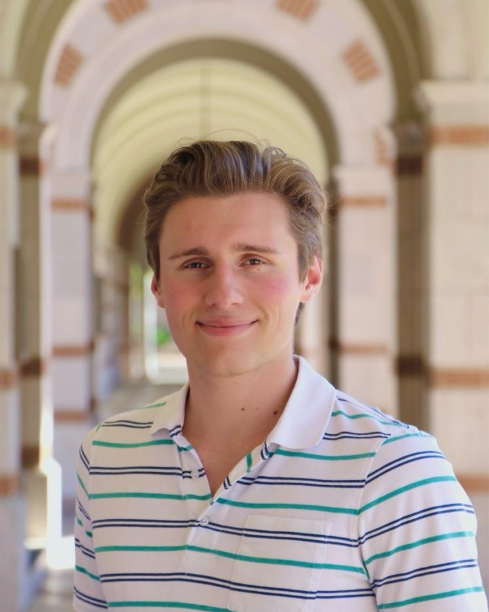
Why did you choose to participate in the M3 Challenge in high school?
When I was a sophomore in high school, some friends put together a team for the M3 Challenge and invited me to join. However, the competition was limited to only juniors and seniors, so I was sidelined until the following year. The concept of spending a whole day (but just one day) focused on a single project with a group of peers who have a similar analytical mindset appealed to me, and I eagerly awaited the opportunity to compete in the next two challenges. Junior year, my team worked on a project studying the impact of changes in sea level on U.S. National Parks. We proposed a creative (but unsophisticated) method for estimating the amount of submerged park coastline without access to large-scale topographical data. This was my first exposure to the field of mathematical modeling for a real-world problem.Thanks to the contributions of my team, this solution received an honorable mention in the competition.
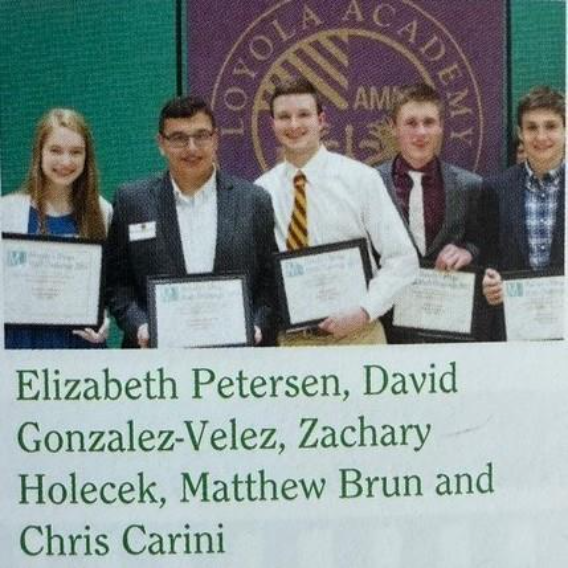
Loyola Academy M3 Challenge Team, 2017
Did the experience change how you thought about math or real- world problem solving?
Despite the long, 14-hour day spent completing the competitions, I came home in the evening energized and excited about the ideas our teams generated. Prior to the Challenge, I expected to study computer science in college; however, these experiences convinced me that the part of computer science which attracted me was the need to think about a problem in a rigorous mathematical way. From this realization, I discovered the field of applied math, which takes the best of both worlds from pure mathematics and computer science. I ended up studying Computational and Applied Mathematics for the first few years of my undergraduate career and eventually specialized in the field of Operations Research (OR). I received a BA in OR and am currently pursuing a PhD, also in OR.
How was your first experience using MATLAB? What was that learning curve like as a student?
My first exposure to MATLAB was in the first semester of my undergraduate career at Rice, when I took a class called Introduction to Engineering Computation. Each week of the course explored a different area of applied math (optimization, graphs, machine learning, numerical partial differential equations…) and implemented an experiment in MATLAB.
I had a lot of fun seeing for the first time many areas in which math is used in the real-world. MATLAB was an intuitive language that I found to be effective for quickly implementing analysis for the style of project in the class. The interactive debugging environment made it very easy to write and understand MATLAB code. I continued to use MATLAB extensively in the remainder of my undergraduate career, and I worked as a TA for the course in my six remaining semesters.
Can you tell us about your current research at MIT and what you’re focusing on?
At MIT, I am pursuing a PhD in Operations Research. OR is a field that applies mathematical tools to assist in making better decisions, with techniques that range from analytics to machine learning to mathematical optimization. I focus primarily on optimization, with applications drawn from energy systems. In this area, we study how to improve the design and operations of these systems, which include the power grid, electrified systems, and renewable energies. To do so, we propose new mathematical models for these systems and introduce algorithms and techniques to solve them effectively and efficiently.
One recent project focuses on long-term planning for investments in electric vehicle battery recycling facilities. Recycling is a promising approach to dispose of used batteries and to reuse the valuable materials in new batteries. Our work suggests an approach, based in mathematical optimization, for recyclers to decide how much recycling capacity to construct under uncertainty related to adoption of electric vehicles, and we analyze the impact of external policies (like grants and tax credits) on domestic investment in these technologies.
Another project focuses on efficient operation of the power grid. Grid operators need to satisfy electricity demand by deciding when to turn generators on and how much power they produce, all while ensuring minimizing operating costs. Due to the complex physics of AC power transmission, it is very difficult to solve this problem at scale. We propose a new penalty alternating direction method, an algorithm that alternates between solving small pieces of the overall problem, which finds high quality solutions to large instances of this problem efficiently. Our solution placed 2nd overall (out of 14 teams) in a competition organized by ARPA-E and demonstrates to the industry that this kind of problem can be solved.
Overall, I think that the complex nature of these systems poses many interesting problems that can be tackled with mathematical optimization. Moving forward, I plan on studying how optimization can support new modes of operating these systems and help mitigate threats like wildfire.
How are you using MATLAB in your current research or academic work?
I use MATLAB to explore theoretical concepts and help identify research questions. Many of the theoretical questions I have worked on admit a geometric perspective, which makes it helpful to visualize different aspects of the problem. Using MATLAB, I put together figures which help describe the geometry of the problem, which can confirm (or reject) my hypotheses or suggest new ways to think about the problem.
For example, during my undergraduate senior year, I worked on problems in multiobjective integer optimization. These models simultaneously minimize multiple expressions with constraints that require that the variables take discrete values. Understanding these models is highly geometric, as the objective expressions form a vector of values which can be visualized in multiple dimensions. In the early days of this research, I used MATLAB to visualize simple instances of these problems. Eventually, we generalized these insights into new results that apply to all instances from this class. Specifically, we provide conditions that describe the quality of the Lagrangian dual for these problems, helping qualify how and why this dual problem is a useful tool. (The Lagrangian dual is a modified optimization problem which is used to certify [or bound] the quality of a solution to the original problem).
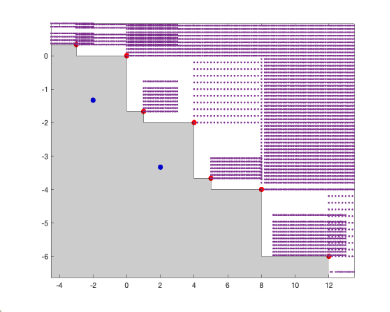
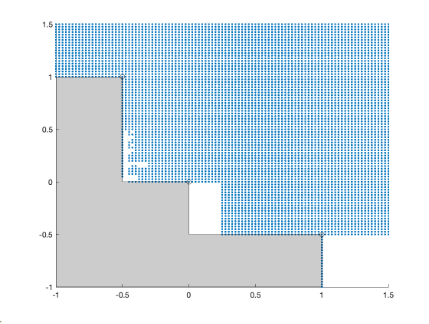
Above are figures generated with MATLAB in the early days of this project, and below is a similar figure from our paper on this topic.
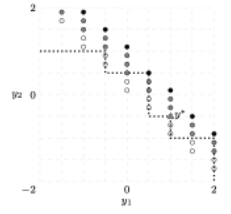
What do you enjoy most about working with MATLAB? Why do you think students should consider learning it?
MATLAB is a great language for quickly prototyping ideas and testing hypotheses. Being able to scroll through the variable space in the IDE and quickly put together detailed plots helps with many tasks through the research pipeline. I also make extensive use of the Symbolic Math Toolbox, which helps with differentiation and integration of symbolic expressions, some of which I desperately want to avoid computing by hand.
What advice would you give high school students who are participating in the M3 Challenge?
The M3 Challenge is a great way to explore the world of applied math. Competing helped me to think about problems in a mathematical way and to design creative ways to analyze problems without access to significant amounts of data, skills which I use extensively in my research today. I would suggest that participants try to think about other topics they see in the world through the same mathematical lens as the challenge encourages, to consider educational paths and careers that utilize this style of thinking, and, most importantly, to have fun with their team!
Registration is now open for the 2026 M3 Challenge: Register here
- Category:
- Math Modeling,
- MATLAB



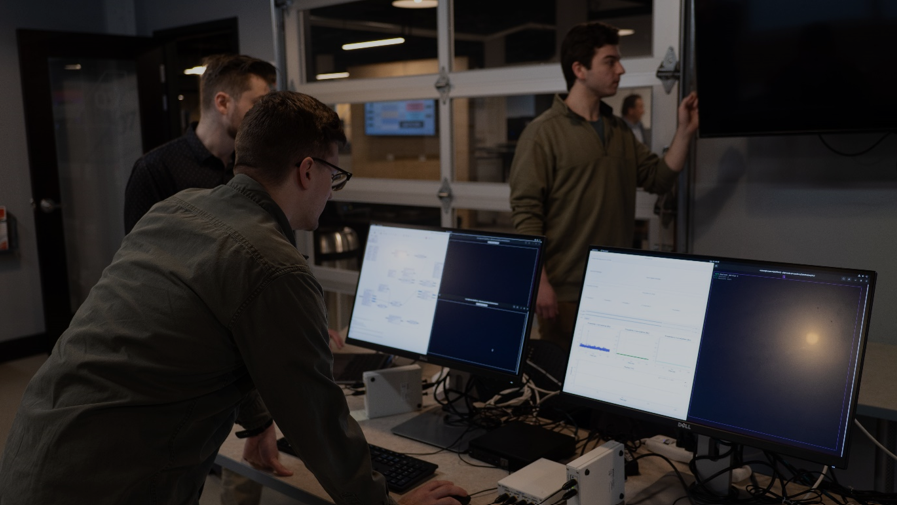





Comments
To leave a comment, please click here to sign in to your MathWorks Account or create a new one.